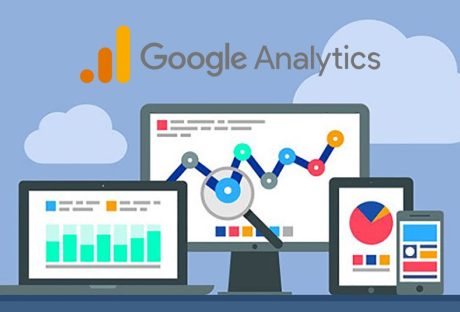The email marketing industry is expanding and there is growing competition between brands: they all want to get people’s attention. Sometimes, acquiring more subscribers seems hard. If you are looking to grow your email list, we have three easy ways maybe you never thought of. Whether you offer a service, product or content is the product, use these tips to add more subscribers to your database and become more successful at email marketing.
Why you should grow your email list
There are good reasons to build your email database. It can be an instantaneous way to reach the people who want to hear from you. Also, it’s cheaper than advertising or mass mailings.
Every marketer wants a large email list which is understandable. In general, the more people you reach, the better results and this has never been more true than with emails. The typical ROI for email is $42 for every $1 spent.
However, before you try any email list growth strategy, remember it’s not always about the numbers. You want true engagement and a long-term relationship with your audience. To build that, focus on adding real subscribers to your list – people who genuinely want to connect with your brand.
How do you do that? Let’s get into three ways to grow your email list without much effort.
Is it easy for someone to sign up?
Many organizations and freelancers have only one sign-up form and you’d be surprised how much you have to search the website to find that form.
So, the first tip: make your email sign-up visible and easy to find. For instance, you could place it at the top of your website and not buried down by the copyright notice. Also, avoid making the text so small that someone can’t read it. Instead, let your signup form be the first thing people see when they land on your platform.
Are you promoting your email list on your social media channels?
Maybe you’ve been working hard to gain followers on Facebook, Instagram, and Twitter. There’s certainly inherent value in this, but a lot of marketers make the mistake of not cross-promoting channels.
Who’s to say that someone can’t follow you on Facebook and be a subscriber to your email list? Just remember that people will frequently leave social media channels for one reason or another. You don’t want them forgetting about your brand and what you offer, so do your best to get them on your list.
Post periodically on social media and invite people to subscribe to your emails. Your newsletters’ content should have real value and be unique from your website or social media content. This is a great incentive to gain an email audience.
Plus, you can think outside the box to gain new followers. Maybe you can run a contest or offer a freebie, such as an e-book to anyone who signs up – whatever you think would entice your audience.
Do you include an email subscribe button in every email you send?
Word of mouth is the best marketing. If someone on your list really likes your email and forwards it on to a friend, they need an easy way to subscribe. A “subscribe” button makes it simple by saving them the trouble of looking you up, going to your website, and finding your form.
So, at the end of every email you send, include a call-to-action. It could be as simple as: “Did you get this email from a friend? Get yours” + “Subscribe” button. The more convenient you make it for people to subscribe, the faster your email list will grow!
Also, it doesn’t hurt to encourage your subscribers to forward your email. Some of them will do that and that’s a great way to grow your audience.
It’s not all about numbers
Now that we’ve gone over a few easy ways to grow your email list, it’s important to keep in mind that it’s not all about numbers. There is another aspect to growing your campaign: email list quality.
Gathering lots of subscribers is great for email marketing, but you have to make sure those subscribers are real. You may be asking, “Well, why wouldn’t they be?”
In the world of email marketing, there are quite a few types of emails that degrade your sender reputation. A sender reputation is a score that every email sender has. It’s the rating Internet Service Providers use to determine your behavior as an email sender.
Some of the factors that influence your sender score are:
- your bounce rate
- your overall engagement: open and click-through rates are vital metrics
- the number of spam complaints and unsubscribes you get
Bad email addresses you could have in your list
All these factors are in direct connection with the quality of your email list. Unfortunately, every organization or marketer will acquire some bad email addresses over time. Some of the most damaging yet prevalent ones include:
- Fake email addresses: for a number of reasons, people sometimes provide fake email addresses. Sometimes they just want to take advantage of a freebie and have no intention of being a subscriber.
- Abuse emails: some people are malicious and others just careless. Abuse email owners have a habit of marking emails as spam, even those they signed up for. You don’t want these people on your list because they will hurt your sender reputation.
- Temporary email addresses: would you believe there are websites that exist for the sole purpose of generating temporary emails? These email addresses are sometimes called disposable because the person uses them for a day or two and never again. Then, they only cause your bounce rate to go up.
On top of these, we can’t forget there’s always natural decay of the list. People simply change email addresses. Some people use their school or work email and they graduate or quit. You must get those email addresses off of your list.
Use an email verifier to keep your database clean
Thankfully, there is a healthy way to grow and maintain your list. The first thing is to never buy or trade email addresses to add to your list. First of all, it’s illegal to email people without their consent. Furthermore, a purchased list isn’t likely to result in anything positive and most likely the people you add will mark you as spam.
The simplest way to keep your list healthy is to:
- The first clean it in bulk using an email verifier
- then, install an email verification API on your sign-up forms.
Clean your list in bulk
If you already have a substantial number of contacts in your list, but are not sure about their validity, run your list through a bulk email verifier. The process is simple and doesn’t take much time: you upload your list into the system and get it back clean within hours or even minutes.
Install an email verification API
This simple piece of software checks every new email address in real-time. It grants permission to good emailers and keeps out any of the problematic accounts mentioned above. Once your list is clean, consider adding the API to all your sign-up forms to ensure it stays in good shape.
The sky’s the limit
You would be surprised what a difference email marketing makes. It’s the most personal way to reach people and is an incredible tool to communicate the story of your brand and service. Using careful planning, creativity and email verification tools you are on the right path to growing your email list and getting good results.
Read Also:
























